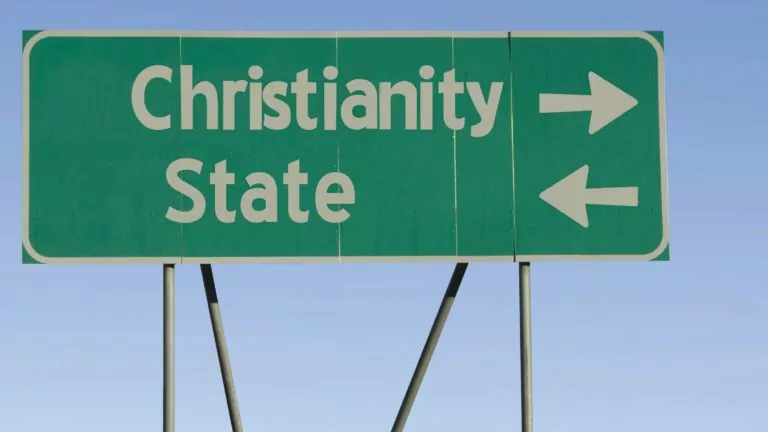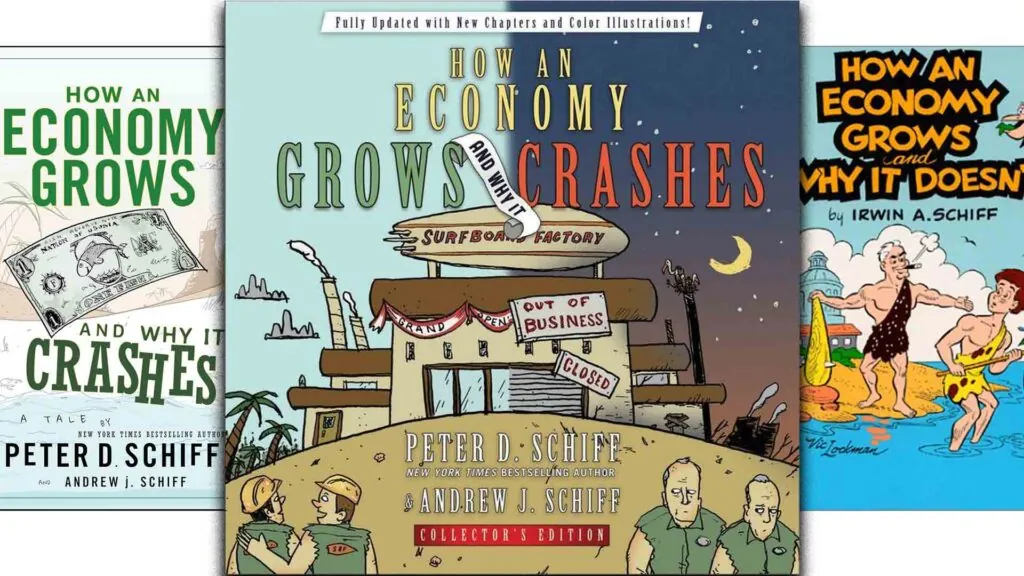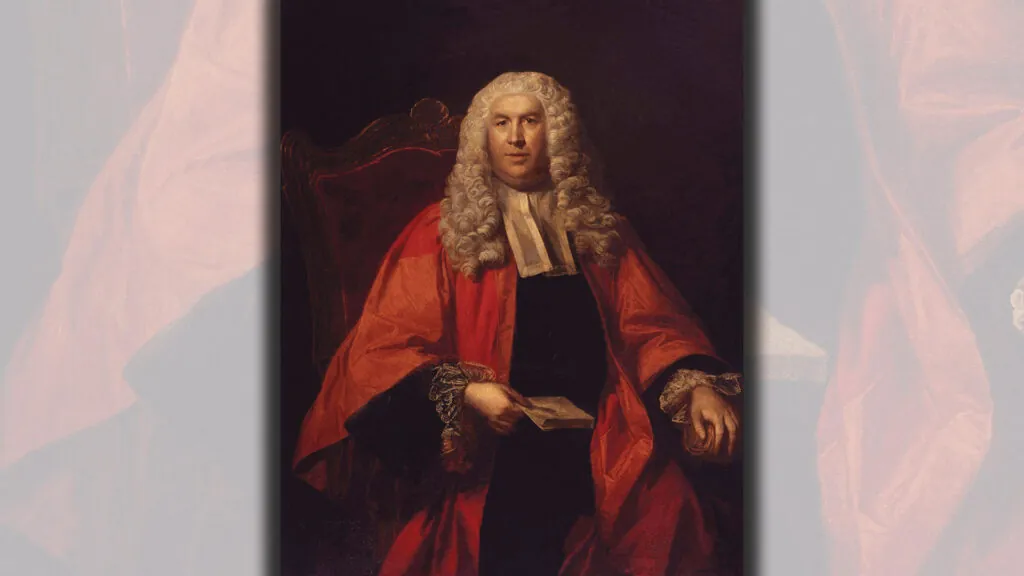The agenda of “Christian” secularists
*****
This first appeared in the June 2013 issue.
It wasn’t the only reason, but it was biggest – when abortion was legalized in Canada in 1969, and in the US in 1973, North American Christians got heavily involved in politics. And as they did, they were criticized for “violating the separation of church and state.” The other side – the secular humanists – used this jargon to try to delegitimize the Christian opposition to their agenda.
The accusation that Christian activism violates the separation of church and state is simply false. The church and the state are separate institutions, and they remain entirely separate even when Christians engage society from an explicitly Christian perspective. Christians are citizens and have just as much right to participate in society and politics as anyone else.
While it’s not hard to understand why secularists don’t want Christians bringing their faith with them into the political realm, it is a mystery as to why some Christians will also accuse explicitly Christian politicians and political activists of violating the separation of church and state. One such example is the book A Secular Faith: Why Christianity Favors the Separation of Church and State by Darryl G. Hart. This book is noteworthy because Hart is a well-known elder in the OPC. He speaks for a constituency within the OPC and other conservative Reformed and Presbyterian churches in North America.
Religion out of politics = impossible
The basic thrust of this book is perhaps best stated by one of the endorsements on its dust jacket. Respected Christian historian Mark Noll writes, “Darryl Hart is a serious Christian who wants to get religion out of politics.”
It’s important to notice the difference between two different concepts specified here. Hart’s book title talks about the separation of church and state. Noll’s description of the book mentions getting “religion out of politics.” These are not the same thing.
The separation of church and state refers to organizational and functional separation between two entirely different institutions. The separation of church and state is a good thing and it is Biblical because the Bible establishes both the church and the state as separate entities with different purposes and functions.
Separating religion from politics is a completely different matter. Religion is (generally speaking) a belief system whereas politics consists of activities associated with the government. Separation of religion and politics is impossible, because all political activity is based on ethical concepts that are rooted in religious ideas.
When someone is discussing these kinds of issues, and switches back and forth between “separation of church and state” and “separation of religion and politics” as if the two concepts meant the same thing (like Hart does in this book), confusion is the result – confusion in the reader’s mind to be sure and one wonders if it also reflects confusion or fuzzy thinking in the writer’s mind.
Back to when faith “knew its place”
Towards the beginning of the book Hart states his purpose this way:
“My argument is that the basic teachings of Christianity are virtually useless for resolving America’s political disputes, thus significantly reducing, if not eliminating, the dilemma of how to relate Christianity and American politics.”
Christianity, in his view, is a private, personal religion. You practice your Christianity in your family and your church, but certainly not in the political sphere. Hart claims that those who advocate a distinctly Christian approach to politics are being unbiblical. His purpose is to straighten them out:
“I want those advocates of Christianity’s public role and political responsibility to take seriously Jesus Christ’s own words when he said, “My kingdom is not of this world.” At one time in American history, sixty or so years ago, evangelical Protestants knew that those words involved an ambivalence about the rulers and principalities of this world. Now otherworldliness seems a fossil of an older time when faith knew its place.”
Christ Himself said that His kingdom “is not of this world.” Therefore, in Hart’s view, Christ’s kingdom has nothing to do with government and politics. Christianity is ambivalent about politics. As Hart sees it, Christianity needs to become otherworldly again and get back in “its place,” that is, in the closet rather than in the public arena.
In arguing thusly, Hart recognizes that he is advocating a view at odds with John Calvin. As he puts it,
“To say that using Christianity for political purposes is a distortion of the faith is, of course, to dissent not only from Jerry Falwell or Jim Wallis but also from much more significant church luminaries, from parts of John Calvin to the encyclicals of John Paul II.”
His position, then, consciously differs from the evangelical position, the historic Reformed position, as well as the Roman Catholic position.
American history and the errors of Christendom
Much of his book recounts aspects of American history. In considering his own country’s history, Hart is puzzled that American Protestants “came to regard the Ten Commandments” as “the assumed source of virtue and morality for decent Americans.” Apparently he sees the Ten Commandments as only applicable to the church. He just can’t understand why any Christians would think otherwise:
“That American Protestants thought their exclusive faith could provide the moral standard for a republic conceived in religious neutrality is one of the more surprising twists in the history of biblical religion.”
Actually, it’s not surprising at all. The vast majority of citizens in the new republic were Protestants, and it would have been unthinkable that public moral standards would be anything other than Christian standards. Historically, most Protestants did not believe that Christianity should be divorced from political affairs, as Hart advocates.
Hart believes that Protestant theology in the United States went wrong right from the start. The Puritan founders of America and their theological descendants “repeated the errors of Christendom” by thinking that Christian ethical norms applied to government and society, rather than just the church.
These “errors” were then perpetuated down through the country’s history. American Protestant theology was fundamentally flawed because it saw an active role for Christians as Christians in the social and political affairs of the nation. In contrast to that “flawed” view, Hart warmly describes the perspective of a nineteenth century Presbyterian minister named Stuart Robinson. For Robinson,
“The kingdom was narrowly religious, located ordinarily within the affairs and ministry of the church, the place where it was appropriate for citizens of the divine kingdom to confess that, “Jesus Christ is Lord.” The civil realm, as such, was not a site of Christian activity and should not be.”
In this respect, Robinson offered a corrective to the dominant view that Christianity was relevant to all of life, including public affairs.
The “reduced character of Christ’s sovereignty”
Hart points out that many Christians believe that Christ is Lord of all, and therefore He is also the Lord of government and politics. He brushes that argument aside: “The all-or-nothing logic inherent in appeals to the Lordship of Christ,” Hart writes, “fails to do justice to the reduced character of Christ’s sovereignty in the Christian era.” In the Old Testament, Israel had a political as well as a spiritual component. In the New Testament, the church had an exclusively spiritual focus. Christ no longer carried any political authority.
“The Lordship of Christ, then, was in the Christian era to be seen and employed within the institutional church. The state’s affairs were to be rendered to the state.”
Or, in other words, Christ rules the church but not the state; He is not the Lord of the state.
This may seem to diminish our view of Christianity, but Hart says just the opposite is true. The really important things are the specifically spiritual things such as the forgiveness of sins and the promise of eternal life. This is what Christianity is really all about, and as a result, political activism detracts from the key message of Christianity. As he puts it, “the argument of this book is that using the Christian faith as the basis for culture or politics, by seemingly making it so important, actually trivializes Christianity.”
So in his view he is actually defending Biblical Christianity against a warped version of the faith, namely, a version of Christianity that sees it as applying to all areas of life, rather than just the specifically spiritual matters that are most important:
“The question pursued in this book has been whether Christian-inspired policy, arguments, or candidates are appropriate on Christian grounds. My conclusion is that such involvement is inappropriate, because using Christianity for political ends fundamentally misconstrues the Christian religion.”
Failure of the secular position
Hart is right about the priority of spiritual matters, of course. It is true that our individual relationship with God is much more important than political affairs. But his main point that Christianity is basically irrelevant to government and politics is simply wrong.
Consider just one Scripture passage, Romans 13:1-7. In this passage the civil ruler is said to be “God’s servant for your good.” He is also “an avenger who carries out God’s wrath on the wrongdoer.” Hart would, of course, agree with this, i.e., that the civil government is established by God. But here’s the rub: the civil ruler must distinguish between good and evil in order to carry out his duties. How will he know what is good and what is evil? As “God’s servant,” he will need to look to the Word of God. Where else does God indicate what is good and what is evil? Therefore, if the civil ruler must look to the Bible to fulfill his God-assigned task, Christianity is immediately relevant (essential, in fact) to government and politics. Hart’s effort to divorce Christianity from government and politics comes crashing down.
Another problem is Hart’s support for “religious neutrality” in the public arena. Religious neutrality suggests that Christianity must play no role in politics and government. What does this mean for pressing issues like same-sex marriage and abortion? What is the “neutral” position on same-sex marriage? There’s no such thing. Is allowing babies to be killed “neutral”? Or is forbidding them from being killed “neutral”? The idea of a position on abortion being neutral is absurd. Obviously, neutrality is impossible.
Conclusion
In a book of over 250 pages on the role of Christianity in politics, Hart does not even discuss the issues of homosexual rights and abortion. My fear is that he avoids those issues because the so-called “neutral” view looks a lot like the secular humanist view. In fact, Hart’s whole argument that Christianity is a private affair that should be kept out of the public arena dovetails extremely well with the secular humanist position. But if the Christian worldview is kept out of politics and government the result will not be neutrality, it will be a non-Christian (or even anti-Christian) worldview carrying the day.












